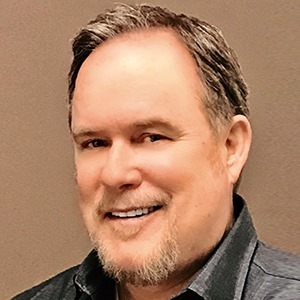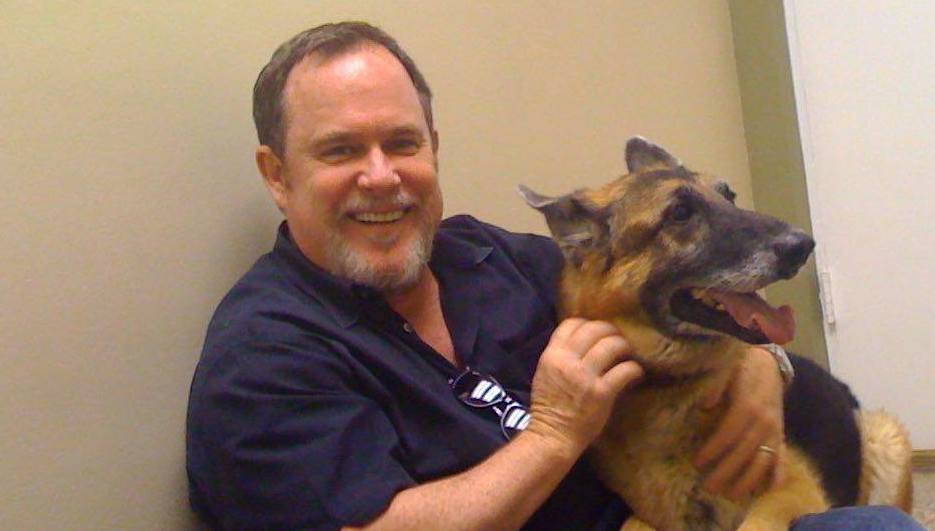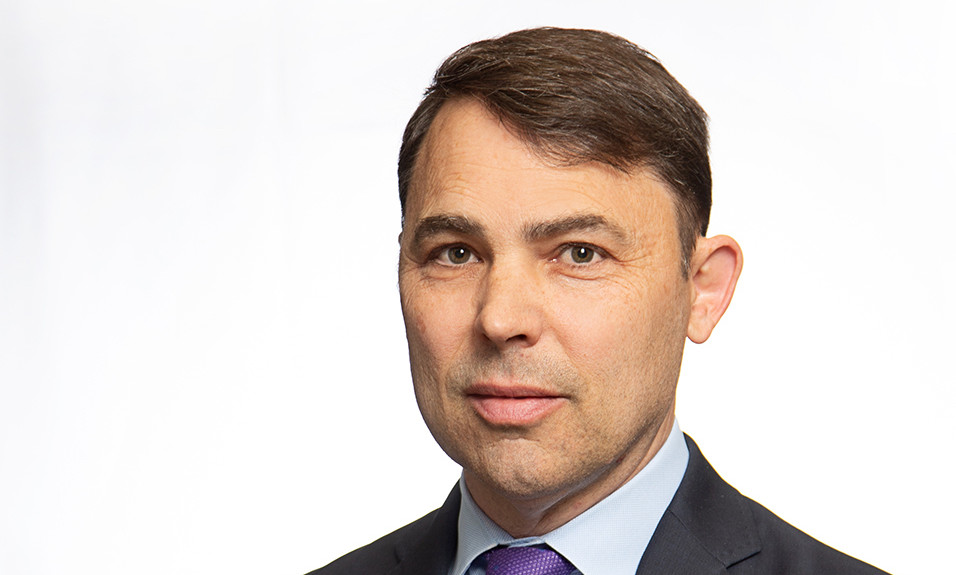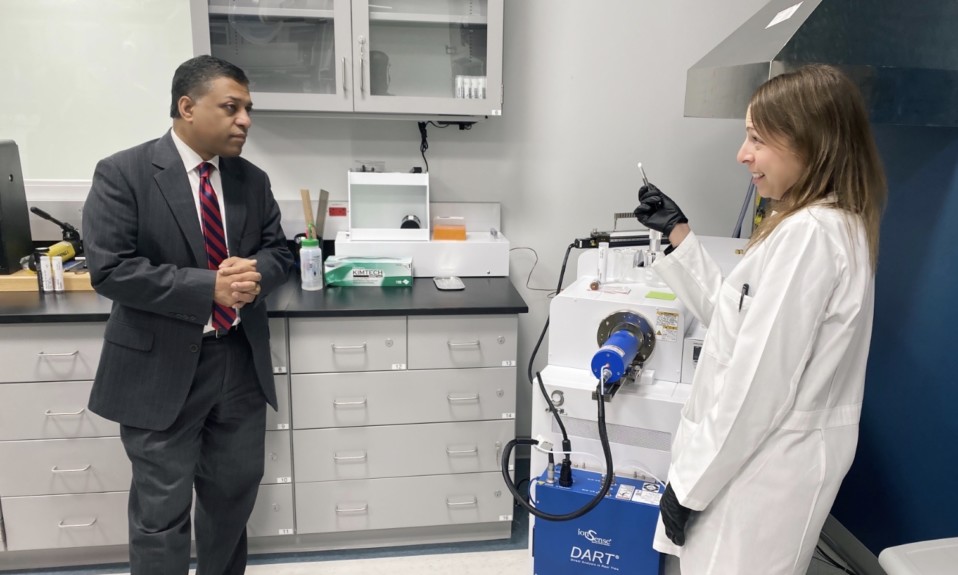The noted interventionist has helped countless celebrities overcome addiction—but first he had to help himself
By Steve Greenberg
Earl Hightower loves the desert. Has a house up against the side of a mountain in Maricopa County, Ariz. It’s gorgeous, but it turns out it’s not for him.
“It’s not just right-wing—it’s crazy,” he says. “You can’t go to the market with a mask on without having words with somebody, which is not how I want to live my life. You know?”
So he’s moving—to Vista, Calif., where the Los Angeles native is remodeling a house as he nears his 69th birthday. The ocean breezes there romance him. The Alcoholics Anonymous scene is good, too, and that’s important to an intervention instructor and chemical dependency counselor who’s gone four decades since his last drink and has spent the past 37 years helping people with addiction and their families. As his Hightower Associates website notes, he has worked with “leaders across many industries, including business, sports, entertainment, finance and government.”
Everyday folks, too. Hightower himself ran into trouble long ago.
“I’m the first to admit I grew up in a violent home,” he says. “I went to boarding school for several years, which was violent. I played football to try to kind of focus myself, but that’s all fear-based. All that violence.
“I’ve seen hundreds of fights in my life. I’ve never seen anybody win one. Even if one guy’s on the ground and one guy’s standing, you just want to fight and you’re a loser because you were in a fight. It’s just stupid. And [Maricopa County] is very much like that. It’s that false notion of the cowboy way—the cowboy ethic—and a false notion of freedom and that personal freedom overrides the well-being of the whole. It’s ridiculous.”
In AA, Hightower submits, the group must survive or the individual will perish.
He is known for working with celebrities, but he’s driven, he told TreatmentMagazine.com in a recent interview, by the deeply held belief that everyone with addiction is similarly up against it on the harrowing bridge from treatment to recovery. So he’ll do his best to continue putting good into the world. “I’m repaying a debt that can’t be repaid,” he says. “That’s all I’m doing.”

Q: The word “intervention” evokes a scene from a television show or movie, with friends gathered and waiting to confront Joe With a Problem. Is that pretty much what it is?
A: The real title is “family intervention.” It’s not just intervention, it’s family intervention. If you break down to the studs and rebuild what intervention is, what you’re doing is taking the people who have the most sway, the most emotional influence over the identified patient, and they’re carrying a message that’s been sculpted and well-crafted—by the interventionist and the family together—and, in a loving and respectful way, asking this person to stop doing what they’re doing and to seek help, and supporting them in stopping what they’re doing.
Q: Who’s leading the discussion? Is it the interventionist?
A: Nowhere in there do I hear the interventionist engaging the identified patient. If you put a patient, a client, in the room—somebody who’s addicted or has multiple issues or concerns—with their loved ones and an interventionist, who do you think that client cares the least about in terms of what they think? The interventionist. So why, then, would you lead with that person to be communicating with the individual? It makes no sense. However, if a good interventionist effectively, in a pre-intervention process, trains the family in how to engage that individual given myriad circumstances that might present themselves—how they’re going to object, what they’re going to object to, the myriad ways they’ll say “no,” essentially—then you’ll have the family prepared.
Q: How have you handled this during the pandemic?
A: When COVID-19 hit, I spent a year and a half at home and did dozens of interventions on Zoom. There was only one guy I didn’t get; everybody else went through treatment. It was dramatically successful. And what I would do is have them put a computer in the room on Zoom so that I could see the identified patient, and I’d be on the phone with one of the key family members, one of the real drivers of the group, one of the people you could tell was one of the leaders of the family and really close to the identified patient, and I would be on an earpiece with them while watching the identified patient as he reacted to specific remarks, specific individuals. As I gathered more data and information about this person, I’d say, “Ask them this,” “Tell them this.”
I know a lot of interventionists who jump in and speak for the family, and almost immediately in the process begin talking to the identified patient to justify their ridiculous fees, right? They see themselves as the tip of the spear, which I think is bad.”
—Earl Hightower
And it all starts with you don’t try to have an irrational conversation with an irrational person. It’s kind of silly. You don’t do that. It was just very successful, and I was very happy to realize that all those years of doing it made me understand the true job of the interventionist. I know a lot of interventionists who jump in and speak for the family, and almost immediately in the process begin talking to the identified patient to justify their ridiculous fees, right? They see themselves as the tip of the spear, which I think is bad.
Ninety-nine percent of the time, I was in the room before COVID-19. Now I’m just a little guy in a box. “Who’s that guy?” The family will say, “He’s just here to help us talk to you in a loving and respectful way.” And then they just go on, and they don’t let him land on that and stay on it. And it works.”
Q: What’s the “bridge” you refer to that leads someone from treatment to recovery?
A: Over the years, what I realized is that I would intervene on people, get them into excellent treatment, expose them to all the tools they needed to stay sober, and have their full agreement and understanding that the only way they would survive would be to become a part of a community of like-minded people, that doing it alone wouldn’t work. They’d try that. [Alcoholics Anonymous] is a group of like-minded people that has a very specific way of staying sober, getting to bed sober each night and thereby building a sober life one day at a time. The odds of them leading a healthy, productive life go up exponentially if they do that.
So they have the bridge from the treatment component into the recovery element, which is post-treatment. What I found is that the greatest number of people relapsed in the first 30 days post-treatment. They never make it across the bridge from treatment to recovery. I would tell people all the time to ask their treatment center for a list of local meetings [and then] just go home, drop off your bags and make it to your first meeting. Don’t open the mail. Go to that meeting and ask, “Are there people here who sponsor? Before you go to bed at home, you should’ve been to your first meeting and should have your sponsor for the next day.
Q: What is it that makes this bridge longer and harder to get across than it looks?
A: The treatment deals with the physical phenomenon of craving; it helps you detox, and you become physically stabilized. Any good treatment center will tell you they’re triage: They stop the bleeding, stabilize the client and then point them in the right direction, try to give them enough tools to get across the bridge and into recovery. But they know that most of the relapses occur shortly after leaving, so they’ll encourage companions and whatever else they can to help somebody make it across the bridge. That’s really the point of treatment—to buy some distance between the last drink, to help build some clarity.
I’m a big fan of the 12-step path, and I’m a big fan of the clinical, therepeutic approach. And I think those things working in concert with each other are a very powerful force.”
—Earl Hightower
But also, good treatment centers assess—constantly, through the entire process they have somebody—was this person’s primary problem truly substance disorder, or was that a symptom? Was that a mask? Were they self-medicating a much more complex mental-health issue or concern? Was there unresolved trauma? Do they have a severe social anxiety disorder? If all you do is detox them, send them to AA, wish them good luck and they’re out the door, they’re going to relapse for sure, because all you did was take their medicine away. You didn’t deal with their underlying problem. So their anxiety goes through the roof, their depression goes to the floor; whatever their problem is becomes accentuated, and they become absolutely miserable. And for them, their experience of sobriety is, “This is terrible.” And they relapse.
Q: I listened to a speech you gave in which you said you started drinking at 12 but felt “off” long before that. Will you share your story?
A: I don’t think that’s really appropriate in this format. Look, if you were to ask me if I was in AA, if I said yes it would mean I was a terrible member of AA. It’s anonymous. If I was a member, I wouldn’t tell you. I haven’t had a drink in 41 years, but that’s got nothing to do with “am I or am I not in a 12-step program?” I haven’t had a drink in 41 years, and I most certainly did not achieve that using my own best thinking. I’ll put it that way.

Q: So you got what you needed to make it across the bridge?
A: I stopped drinking in 1980, and that was a completely different world. What I did get was that if I didn’t want to die from alcoholism, I was going to have to walk a certain path. And I was fresh out of ideas and I just said, “Okay.” There’s a saying that we get beaten into a state of reasonableness, and that was me. So I was very open to the suggestions of others.
In my particular case, I also suffered from some very severe PTSD and generalized anxiety disorder. I didn’t get help from that for a few years, which meant that I suffered needlessly for a few years because nobody knew what to do about that, and I had no idea how to express, “I feel awful all the time.” I didn’t know, and people around me didn’t know. Eventually, I went to work for a treatment center, and there was a therapist there who got to know me and said, “When you’re ready to talk about what you’ve been through, I’m here.” And I thought that was really nice. Weird, but nice. And then when the day came where I was just dead in my tracks—I couldn’t take another step—I knocked on her door and spent the next five years in therapy dealing with some pretty horrific stuff that had gone on earlier in my life.
I’m a big fan of a 12-step path, and I’m a big fan of the clinical, therapeutic approach. And I think those things working in concert with each other are a very powerful force that serves people who suffer from alcoholism, other addictions, mental illness, very well.
I can tell you that I’ve never, ever mentioned a name and said I intervened on so-and-so. You can’t find that anywhere because it doesn’t exist. I have never attached myself to a celebrity. I’ve had celebrities attach themselves to me, but not the other way.”
—Earl Hightower
Q: Why is it easy to find the names of some celebrities you’ve helped with their recovery journeys?
A: Because celebrities have big mouths. I can tell you that I’ve never, ever mentioned a name and said I intervened on so-and-so. You can’t find that anywhere because it doesn’t exist. I have never attached myself to a celebrity. I’ve had celebrities attach themselves to me, but not the other way.
The other thing is, celebrities ask me if I can guarantee a place is anonymous, and I say, “No.” They laugh. I say, “I can guarantee the staff will honor your anonymity, your confidentiality, but I can’t say that about the other clients there. They’re going to call people, and say, “Guess who I’m in treatment with?” Somebody’s got a $10,000 TMZ story or whatever those people get paid.
So if I were to ever intervene on a celebrity, I would tell them to get their publicity people together and get ahead of it, announce they’re going to treatment and that’s it. Don’t get caught doing it. Own it. There’s no shame in having a disease, and there should be, in my opinion, great pride in having a willingness to do something about it.














